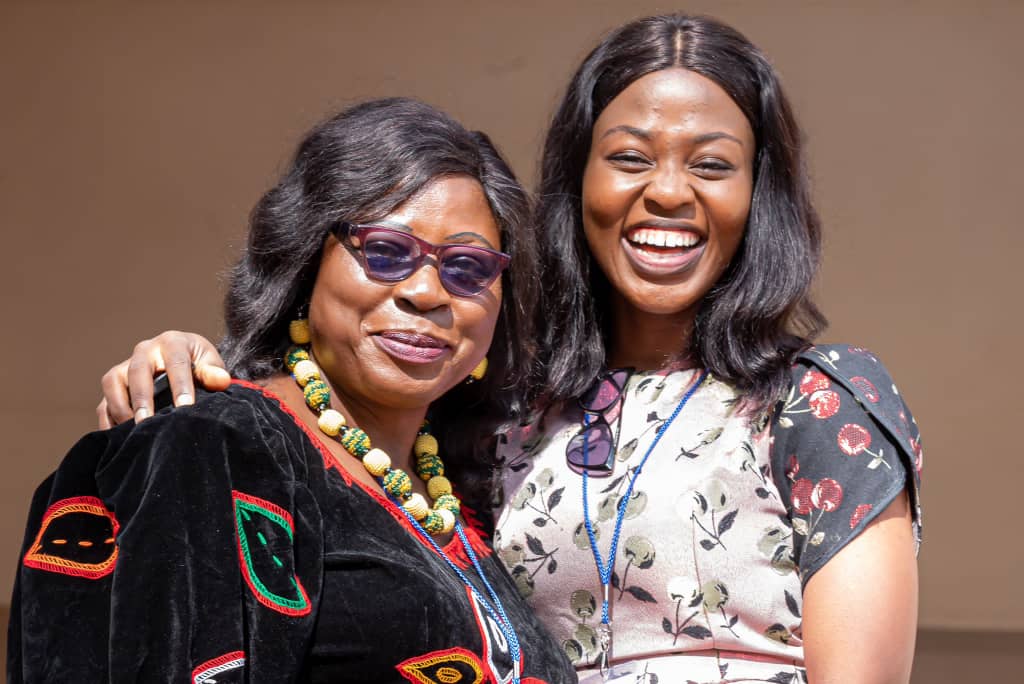When master of global affairs student Beverly Ndifoin gave a presentation on environmental storytelling at a Nairobi conference as part of a Keough School delegation, she was in prestigious company. Other speakers at the Forests & Livelihoods: Assessment, Research, and Engagement (FLARE) conference were renowned researchers and practitioners from around the world, including one highly accomplished arborist, businesswoman, and member of parliament from Ndifoin’s home country of Cameroon: her mother, Honourine Wainachi Nengtoh.
At the FLARE conference, Ndifoin and Nengtoh enjoyed not only their first reunion since Ndifoin began graduate school more than 6,000 miles from home, but also a shared experience that focused on their professional passion: environmental sustainability.
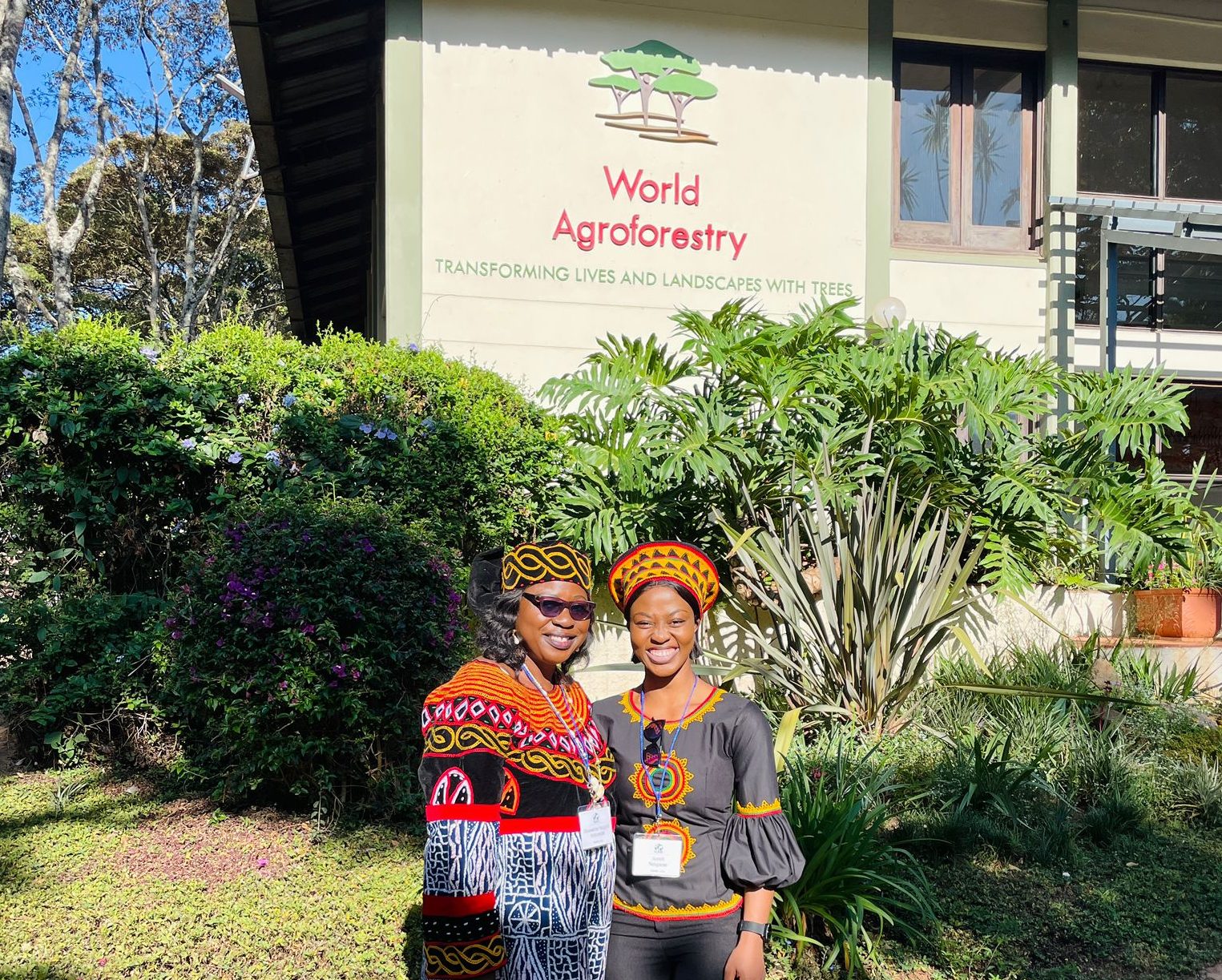
“From the time I was a child, my mom instilled a spirit of conservation in my siblings and I without us even knowing that was what she was doing,” Ndifoin said. “We unconsciously picked it up.”
Nengtoh has run a tree nursery for decades, and early on she enlisted the help of Ndifoin and her five siblings after school and during school holidays. The children filled polythene bags with soil and seedlings, transferred saplings to the nursery, and eventually brought them to various farms for final planting.
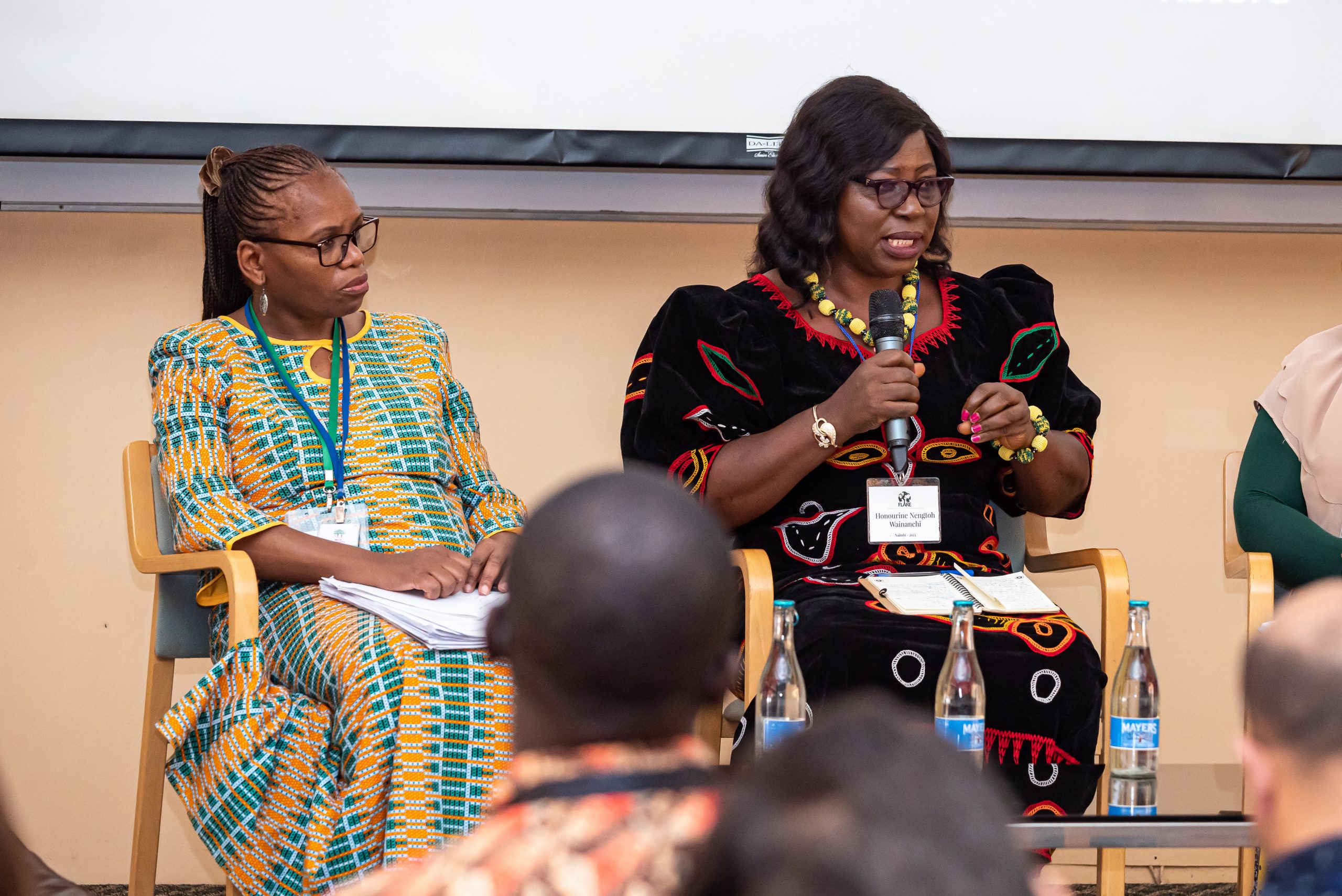
Nengtoh always ensured that there were guava and avocado trees to provide snacks for her young workers, and she taught them how to sort organic waste for compost. Following the harvest each year, Nengtoh led several microfinance groups known as njangi—community-based banking collectives that enable individuals to pool resources and help each other achieve financial goals. She also is the founder of several women’s groups that promote financial self-sufficiency through sustainable agriculture. Nengtoh was elected to the Parliament of Cameroon in 2014 and still serves as a member today.
Ndifoin first noticed the effects of climate change at a young age, when the annual rainfall that typically followed the nursery’s planting season became increasingly unpredictable. She became even more attuned after college, when she was recruited to be an English-language weather news anchor on Cameroon Radio Television, a government-run radio and television service.
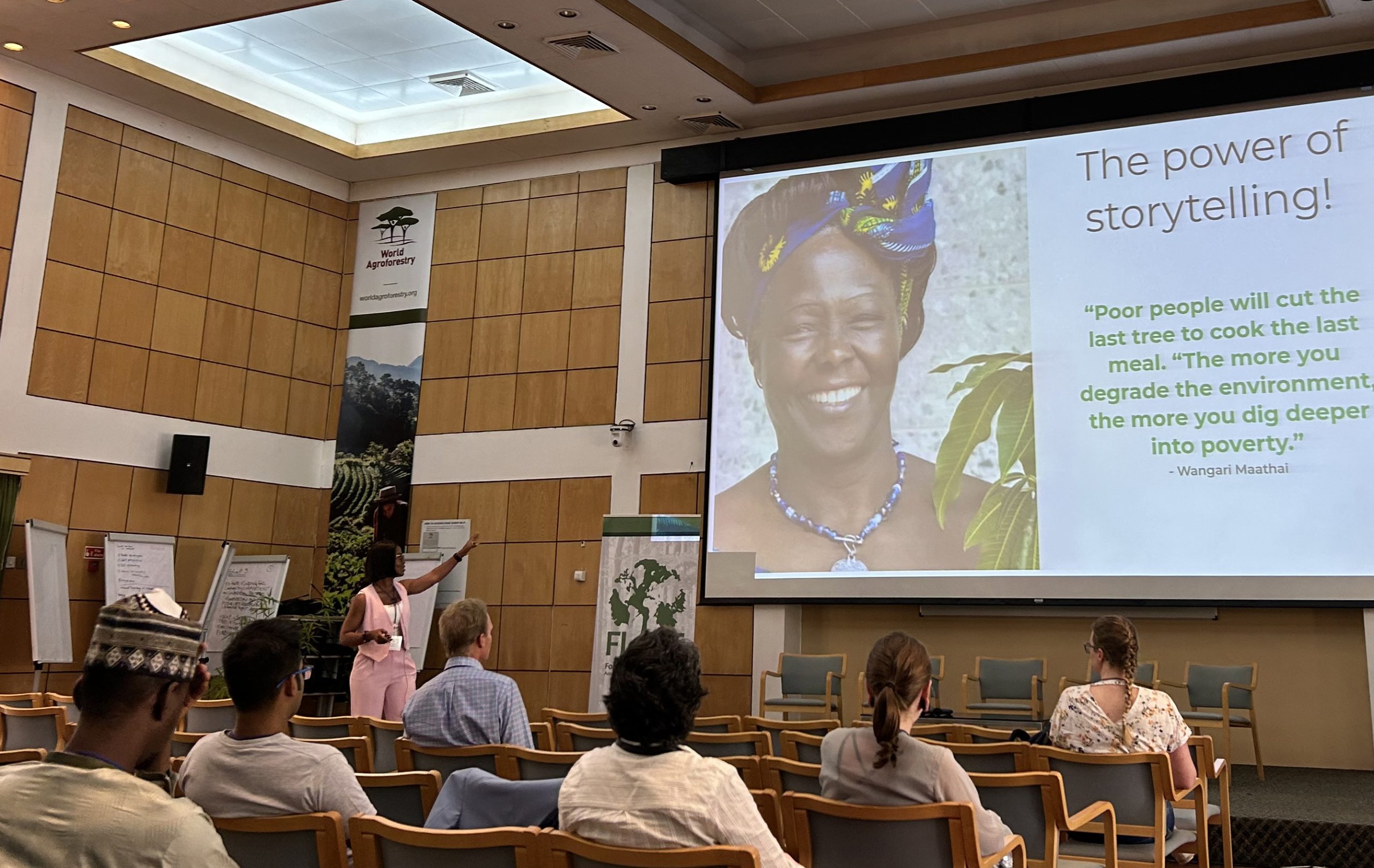
“The job helped me to learn about the science behind the changing climate,” Ndifoin said. “There was a lot of analysis of the data provided by Cameroon’s Transport Ministry to come up with things like rainfall prediction and average temperatures and rainfall prediction.”
Ndifoin later came to the US on a Mandela Washington Fellowship through the State Department and learned about the Keough School from a program alum who had studied at Notre Dame. She arrived on campus in August, and she and classmate Nanyeni Glory Diotoh are the first students from Cameroon to come to the Keough School.
When Ndifoin’s academic advisor Dan Miller, associate professor of environmental policy, learned about her journalism experience and interest in conservation, he invited her to work as a research assistant with the FLARE network, which he coordinates, and also to help with the organization’s social media engagement. Because Ndifoin had expertise in translating research into compelling stories, Miller also invited her to give a presentation at FLARE’s conference in Nairobi.
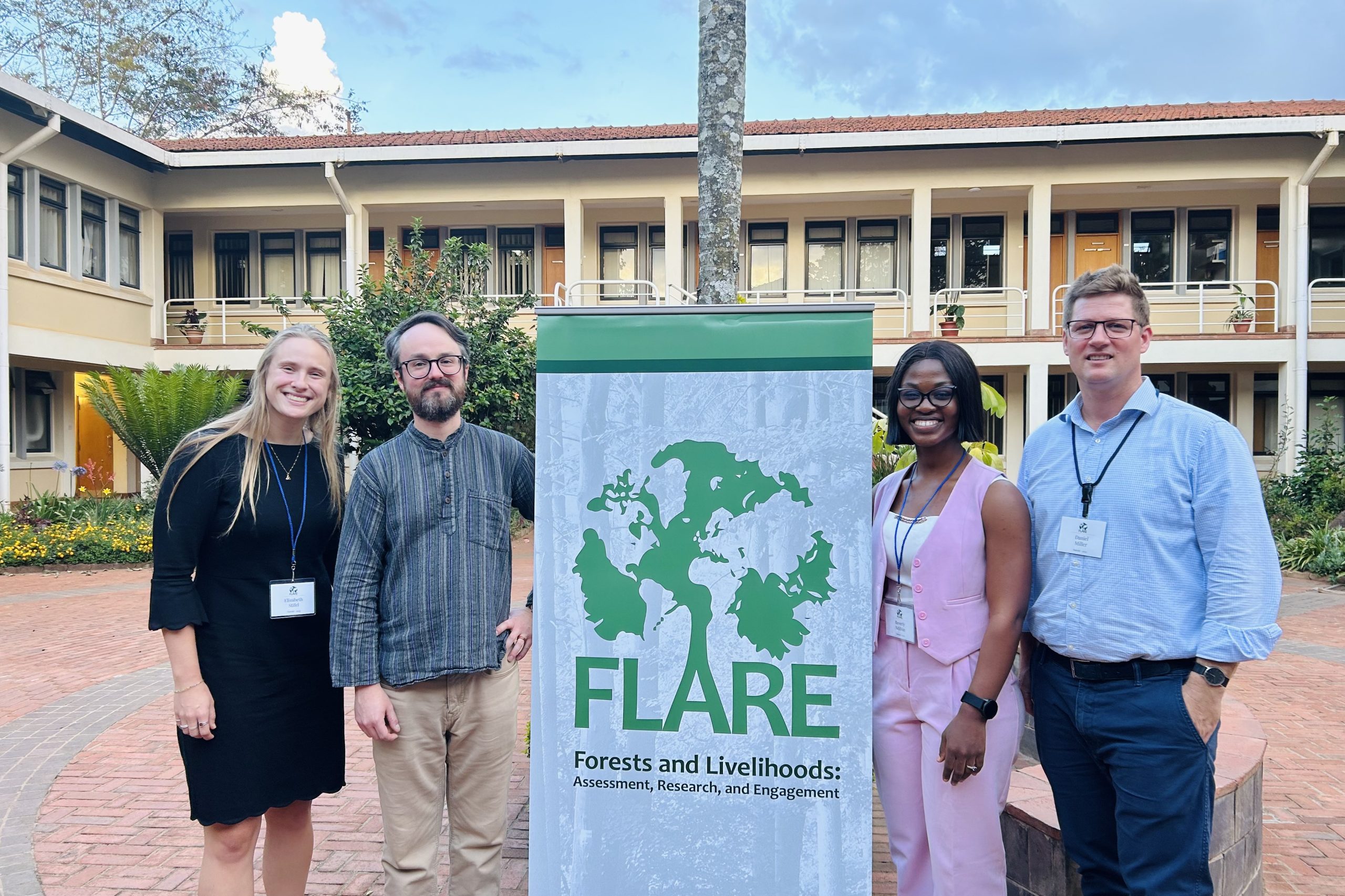
Ndifoin’s time in Nairobi gave her a chance to share her knowledge with a wider professional network and also to reunite with the person who taught her how to plant seeds for both a greener home country and a meaningful career.
“I’m so grateful for the early environmental education my mom provided for me alongside my formal schooling,” Ndifoin said. “It was a perfect springboard and now serves as an ever-present inspiration for my graduate work at the Keough School.”
Top photo: Master of global affairs student Beverly Ndifoin (right) with her mother, environmental activist, arborist, and business leader Honourine Wainachi Nengtoh.
Related story: What I learned in Nairobi about protecting forests and livelihoods (Keough Insider)
